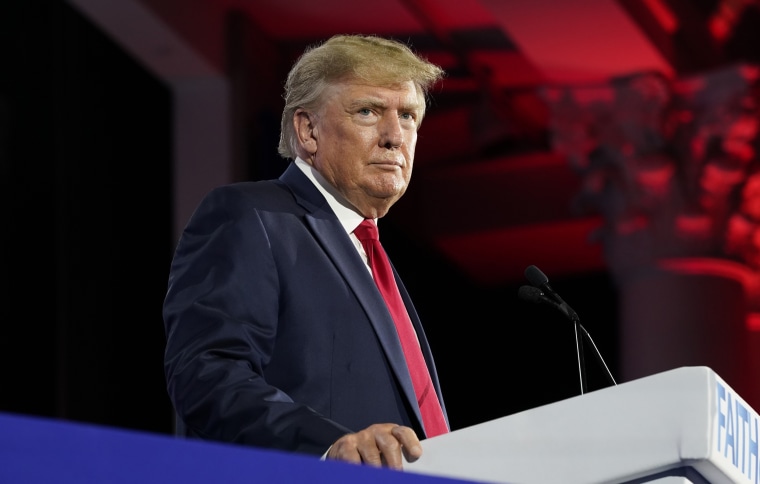WASHINGTON — Prosecutors from special counsel Jack Smith's office have requested that former President Donald Trump's criminal trial for alleged mishandling of classified documents be delayed until December, according to a court filing on Friday.
Earlier this week, Judge Aileen Cannon set a trial date for Aug. 14 and estimated that the court proceedings would take two weeks. But prosecutors said more time was needed before the trial could begin and requested that the trial be delayed until Dec. 11.
If the date is approved and isn't delayed further, Trump, who is seeking a return to the White House, could face the jury in December and voters in January. While a final date has not been set for the Iowa caucuses, the first primary contest is expected to take place in mid-January.
In a separate case, Trump is set to face a criminal trial in New York City, starting in March, halfway through primary voting.
Prosecutors in special counsel Smith’s office also told the court on Friday that they had discussed the delay with Trump's lawyers.
"Defense counsel confirmed they do not oppose an adjournment of the current trial date," the filing said.
Prosecutors pointed to the need to obtain security clearances for the defense attorneys as the primary reason for the requested delay. Interim clearances can be obtained within 48 hours, the court filing said, but final approval needed to review all the documents will take 45 to 60 days. Not all defense attorneys have submitted the proper paperwork to begin the process, the filing said.
Trump is accused of mishandling classified documents that he took with him when he left the White House. The indictment that was made public this month indicated the documents in question remain classified.
The Classified Information Procedures Act provides a set of guidelines to allow classified documents to be used in a trial. The filing detailed a proposed timeline to allow both sides to litigate how classified documents will be addressed during the trial.
Trump faces 37 counts on seven separate charges, including willful retention of national defense information, conspiracy to obstruct and making false statements. Co-defendant Walt Nauta was charged with Trump on five of the counts, and faces a separate charge of making false statements.
Trump has denied any wrongdoing, insisted he was entitled to keep the documents and accused the prosecution of being politically motivated. He pleaded not guilty at a Miami courthouse earlier this month.

